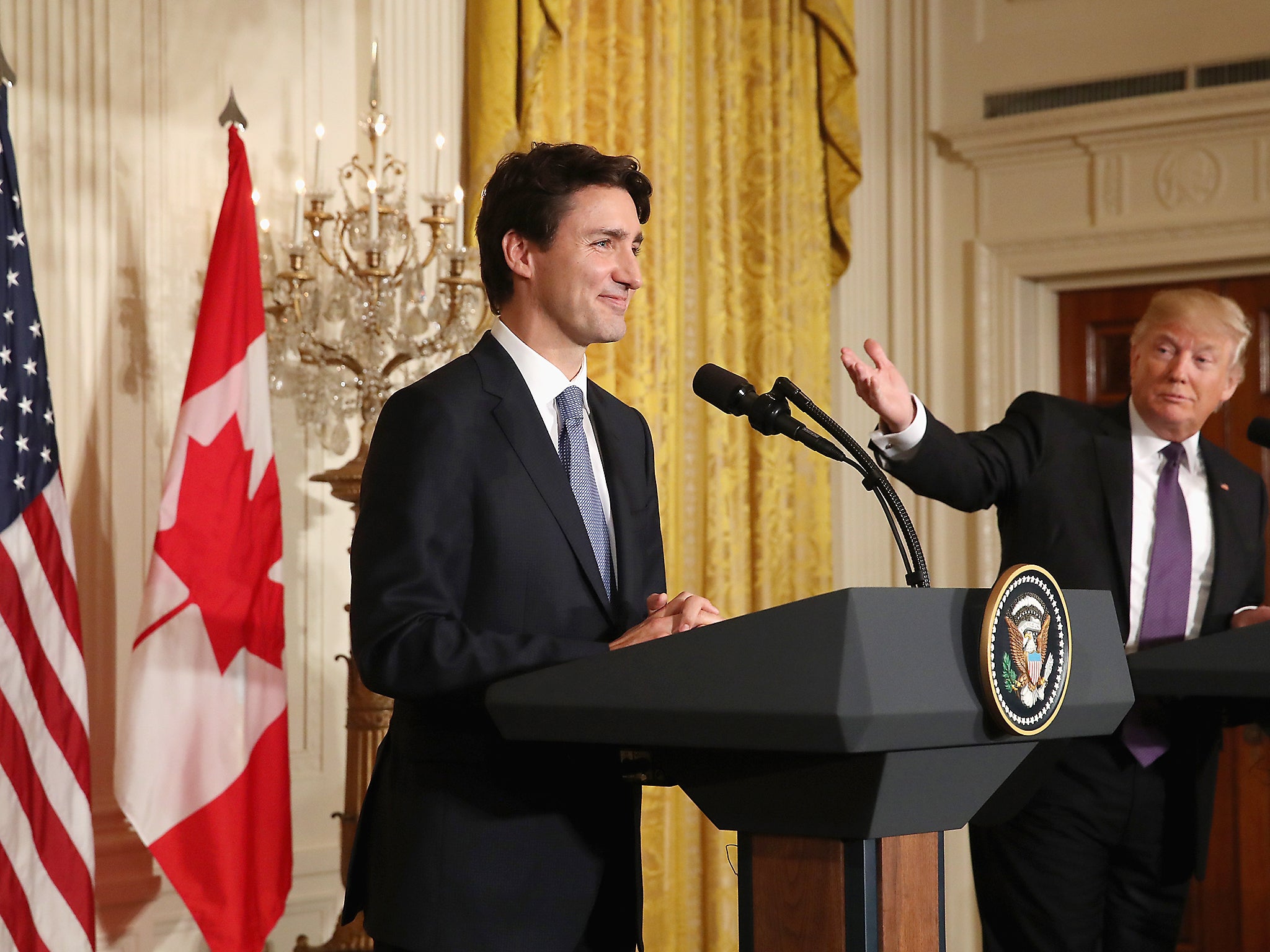How much more will Justin Trudeau have to clean up after Donald Trump?
A leaked draft of the Trump administration's Environmental Protection Agency budget proposal has revealed the US government is considering slashing funds for its Great Lakes protection project, which could affect the drinking water millions of Canadians rely on


However stringent border controls between countries may be, drawing a hard line between shared waters can be murky territory at best. Whose responsibility is it to keep those waters clean – and what happens if one side of the pond decides it doesn’t want to do its part anymore? That could soon be the question Canada faces, in light of a leaked document revealing earlier this week that Donald Trump’s administration wants to slash funding for the US’s Great Lakes restoration project by a whopping 97 per cent.
Four of the five Great Lakes, which make up the largest surface freshwater system on earth, are shared between the US and Canada – and those four provide drinking water to as many as 10 million Canadians, according to Environment and Climate Change Canada (ECCC).
The cuts, outlined in a draft copy of the Trump administration’s Environmental Protection Agency budget proposal, obtained by The Associated Press, would see the US dramatically diminish its funding for protection and restoration of the freshwater lakes from $300m per year to a meagre $10m.
The ECCC warns on its website that the “sustainability of the Great Lakes ecosystem is threatened”, with the ecosystem facing new and emerging challenges including new chemical contaminants, invasive species like the Asian carp, and the impacts of climate change. It also states clearly, “restoring and protecting the Great Lakes is a shared responsibility” between Canada and the US, a commitment both countries signed onto in the Canada-US Great Lakes Water Quality Agreement in 2012.
But now, it seems, the US may no longer be willing to uphold its end of the bargain. They say “love thy neighbours”, but does that bit of wisdom still apply on a one-way street?
Canada has already felt the consequences of sharing border lines with a United States led by Donald Trump. Canadian border services have been struggling to keep up with the hundreds of refugees who have shown up at the northern country’s border, desperate to flee Trump’s America.
A 2004 agreement between the two countries has forced asylum seekers to cross into Canada illegally, risking their lives in freezing conditions to get there. The deal hinges on the notion that both countries are equally safe for refugees and as a result, migrants must make their asylum claim in whichever country they arrive in first.
But that pact seems to be becoming increasingly anachronistic, much like Canada’s Great Lakes agreement with America will be if the US Congress decides to accept the President’s proposed budget cuts.
Canada must contend with the fact that a new neighbour has moved in next door – and that this particular neighbour is, for the most part, only concerned about his own side of the fence. And if Trump’s disinterest in maintaining the hedges and keeping the neighbourhood clean persists – as I’m certain it will – Canada will have to ask itself just how much it is willing to clean up after the United States.


Join our commenting forum
Join thought-provoking conversations, follow other Independent readers and see their replies